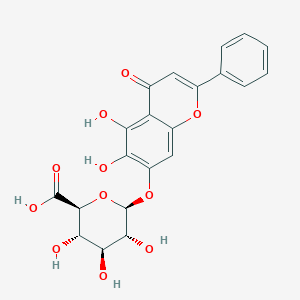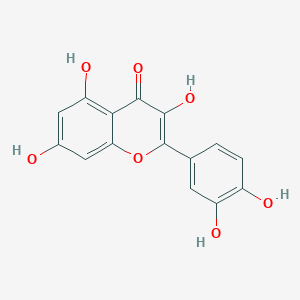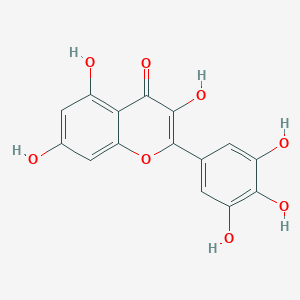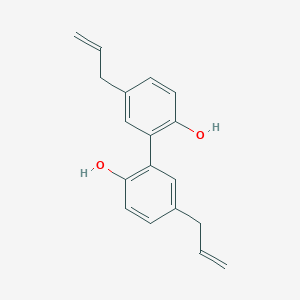Description
Scutellaria species that contain baicalin include Scutellaria baicalensis and Scutellaria lateriflora. Scutellaria galericulata stems contain 10 mg/g baicalin. It is one of the chemical components of the plant supplement Sho-Saiko-To. It is also found in the wood of the Oroxylum indicum tree.
Baicalin, like its aglycone baicalein, is a positive allosteric regulator of the GABAA receptor’s benzodiazepine and/or non-benzodiazepine sites. Baicalin has anxiolytic effects in rodents but no sedative or myorelaxant effects. Baicalin, along with other flavonoids, is believed to be responsible for the anxiolytic effects of S. baicalensis and S. lateriflora.
Baicalin is a recognized inhibitor of prolyl endopeptidase. It causes pancreas cancer cells to die.
Benefits of Baicalin:
- Anti-Inflammatory Properties: Baicalin has been shown to exhibit anti-inflammatory effects, making it potentially useful in treating conditions like arthritis and inflammatory bowel disease.
- Antioxidant Effects: It acts as an antioxidant, scavenging harmful free radicals in the body. This can help in preventing cellular damage and aging.
- Neuroprotective Actions: Some studies suggest that baicalin may have protective effects on the brain, possibly beneficial in neurodegenerative diseases like Alzheimer’s.
- Antiviral and Antibacterial Properties: Baicalin has shown potential in inhibiting the growth of certain viruses and bacteria, making it a candidate for treating infections.
- Liver Protection: It may protect the liver from damage by toxins and diseases, thanks to its antioxidative and anti-inflammatory effects.
- Potential Anti-Cancer Effects: Preliminary research suggests that baicalin may inhibit the growth of certain cancer cells.
Applications and Main Usage:
- Traditional Medicine: In traditional Chinese medicine, baicalin is used to treat various ailments like hypertension, allergies, and infections.
- Supplements: It is available in dietary supplements for its antioxidant and anti-inflammatory benefits.
- Cosmetics: Due to its antioxidative properties, baicalin is sometimes used in skincare products to protect the skin from aging and environmental damage.
- Pharmaceutical Research: Ongoing research is exploring its potential in drug development, particularly for neuroprotective, anticancer, and liver-protective medications.
- Combination Therapies: Baicalin is sometimes used in combination with other traditional Chinese herbs to enhance its therapeutic effects.





